Empire in Translation: Perso-Arabic Knowledge and the Making of Early Modern Ottoman Civilisation
University of Münster, 15–17 January 2025

The Ottoman polity initially emerged as a peripheral entity in the broader knowledge network of the Islamic world. Following the conquest of Constantinople, however, the ascending Empire rapidly became a central hub, as sultans Meḥmed II and his son Bāyezīd II increasingly sponsored scholarly and literary works. Translation activities played a pivotal role in this transformation, further accelerated in the early sixteenth century by two major events: the conquest of Mamluk Syria and Egypt by Sultan Selīm I and the Safavid takeover of Iran.
In addition to transforming the Ottoman Empire’s standing in the (Sunni) Islamic world and establishing its (Shia) archenemy in the East, these events marked a definitive shift in the making of Ottoman literature and scholarship. The influx of Arab scholars from classical Islamic centres like Cairo and Damascus, along with Persian scholars seeking refuge from anti-Sunni persecution in Iran, exposed Ottoman elites in Istanbul and across the Empire to Arabic and Persian knowledge on an unprecedented scale.
The translation of texts across all genres of Islamic literature and scholarship, including poetry, history, encyclopedias, and religious sciences, played a crucial role in the development and acculturation of this emerging Ottoman civilisation. It legitimised the Ottomans’ self-image as heralds of a new Islamic ‘golden age’, embodying a symbolic translatio imperii of cultural and political leadership within the Islamic world.
The early modern Ottoman approach to translation (terceme) differed from a strict literal rendition from the source language to the target language. Instead, it embraced diverse forms of adaptation, imitation, rewriting, and repurposing. This characteristic suggests that Ottoman translations were more than just a means of conveying knowledge; they served as a tool in shaping a distinct literary and scholarly culture.
To investigate these phenomena, we are inviting contributions for a conference titled ‘Empire in Translation: Perso-Arabic Knowledge and the Making of Early Modern Ottoman Civilisation’, to be held at the University of Münster (Germany) on 15–17 January 2025. This conference is organised by the Emmy Noether Junior Research Group TRANSLAPT, Inner-Islamic Transfer of Knowledge within Arabic-Persian-Ottoman Translation Processes in the Eastern Mediterranean (1400–1750), which aims to investigate the transregional transfer of knowledge holistically by focusing on translation as a concept, process, and product in a large portion of the Islamic world.
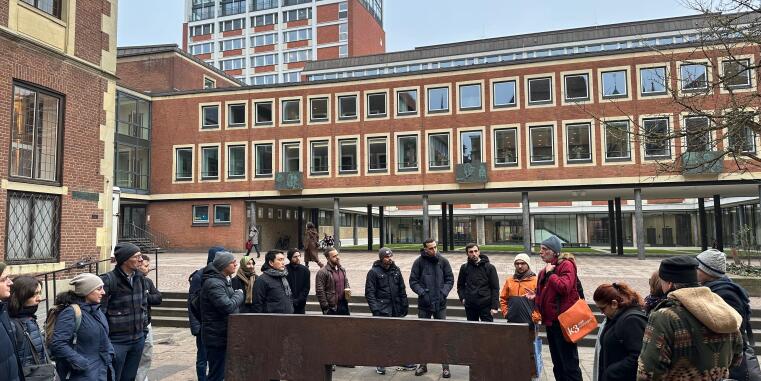
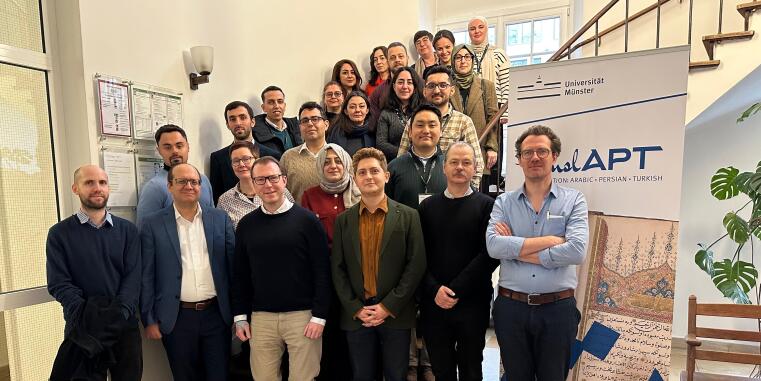
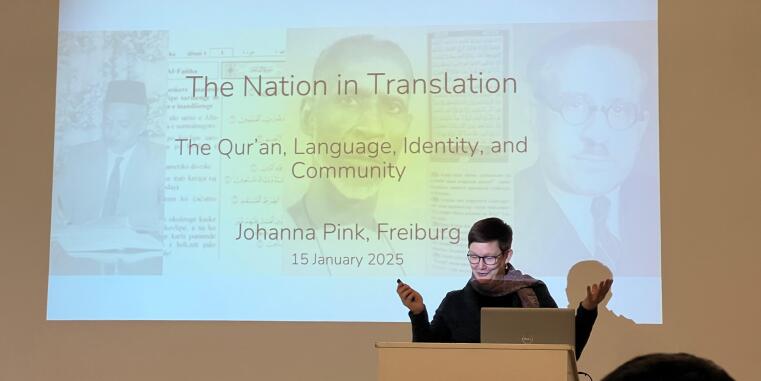
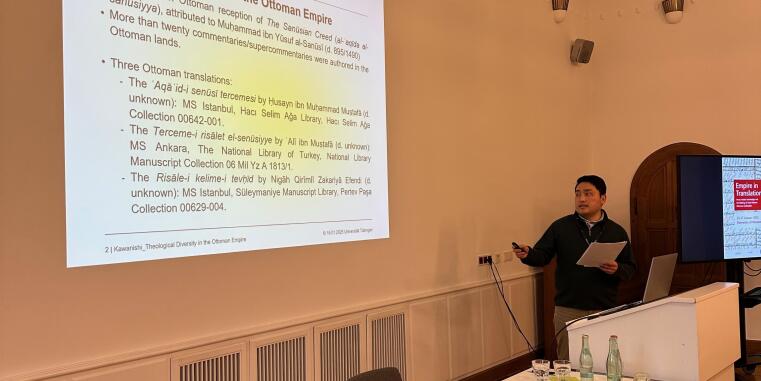
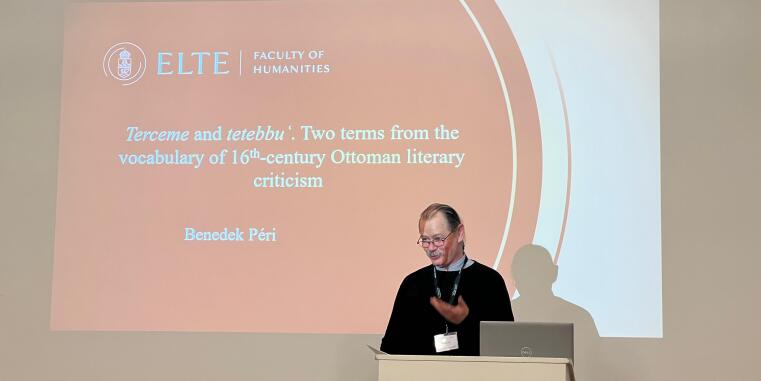
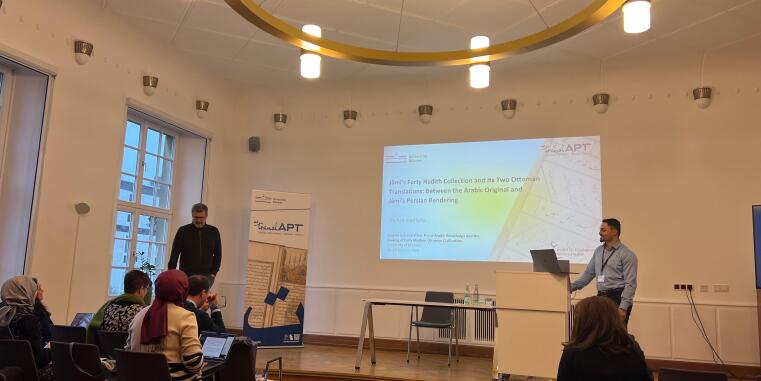
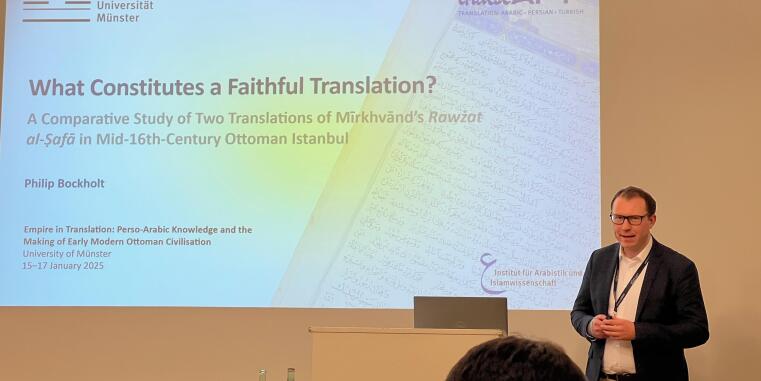
Programme
Wednesday, 15 January
14.30 Welcoming Address & Introduction
- Syrinx von Hees (Director of the Institute of Arabic and Islamic Studies, Münster)
- Philip Bockholt (Münster)
15.00 Keynote lecture
- Johanna Pink (Freiburg): The Nation in Translation: The Qur’an, Language, Identity, and Community
16:00 Coffee break
16:30 / Chair: Sacha Alsancakli
Panel I: Conceptual and Terminological Reflections
- Kristof D’hulster (Bonn): The Role of Translation in the Development of Western Turkic Literacy: The Mamluk Case and the Ottoman Case Compared
- Benedek Péri (Budapest): Terceme and Tetebbuʿ: Two Terms from the Vocabulary of Sixteenth-Century Ottoman Literary Criticism
- Philip Bockholt (Münster): What Constitutes a Faithful Translation? A Comparative Study of Two Translations of Mīrkhvānd’s Rawżat al-Ṣafā in Mid-Sixteenth-Century Ottoman Istanbul
18:00 Reception
Thursday, 16 January
09:00 / Chair: Syrinx von Hees
Panel II: Cosmography and Craftsmanship
- Feray Coşkun (Istanbul): Exploring the Early Modern Ottoman Reception of Arabic and Persian Cosmographies
- Sacha Alsancakli (Münster): Liberal Adaptation or Literal Rendition? Two Distinct Approaches to Translation in the Case of a Seventeenth-Century Manual of Craftsmanship, the Majmūʿat al-Ṣanāyiʿ
10:00 Coffee break
10:30 / Chair: Asmaa Essakouti
Panel III: Sufism and Ethics
- Tobias Sick (Münster): “On the Finest Yellow Paper”: On the Print Editions of the Pandnāma-yi ʿAṭṭār and Its Translations (1800–1900)
- Gülfem Alıcı (Hamburg): From Aleppo to Erzurum and Beyond: Transfer and Transformation of Mystical Knowledge through Two Ottoman Turkish Translations from the Eighteenth Century
11:30 Coffee break
12:00 / Chair: Hülya Çelik
Panel IV: Epistolography and Lexicography
- Arif Erbil (Providence, RI): Translating for the Empire: Circulation of Epistolary Knowledge across the Islamicate World in the Sixteenth Century
- Ani Sargsyan (Hamburg): From the Deccan to Istanbul: Burhān-i Qāṭiʿ (1651) and Its (Ottoman-)Turkish Translation Tıbyān-ı Nāfīʿ der Terceme-i Burhān-ı Ḳāṭiʿ (1799)
13:00 Lunch
14:00 / Chair: Johanna Pink
Panel V: Tafsīr and Kalām
- Ahmet Aytep (Münster): Domestication through Translation: Mūsā İzniḳī’s Adaptation of Tafsīr al-Samarqandī
- Hiroaki Kawanishi (Tübingen): Theological Diversity in the Ottoman Empire: Ottoman Translations of The Sanūsian Creed
15:00 Coffee break
15:30 / Chair: Marco Schöller
Panel VI: Ḥadīth and Sīra
- Muhammed Sofu (Münster): Jāmī’s Forty Hadith Collection and Its Two Ottoman Translations: Between the Arabic Original and Jāmī’s Persian Rendering
- Güllü Yıldız (Istanbul): Narrating the Sīra of the Prophet in Context: Persian and Ottoman Translations of Siyar-i Kāzarūnī
19:00 Dinner
Friday, 17 January
09:00 / Chair: Jelena Radovanović
Panel VII: Biography and Hagiography
- Hicham Bouhadi (Münster): Translating Ibn Khallikān into Turkish: Balancing Literal Rendition and Textual Enrichment in Rodosīzāde’s Seventeenth-Century Translation of Wafayāt al-Aʿyān
- Ufuk Erol (Mainz): Integration or Assimilation: Translations of the Ṣafvat al-Ṣafā and Its Politics in the Ottoman Empire (1450s–1500s)
10:00 Coffee break
10:30 / Chair: Kristof D’hulster
Panel VIII: Heresiography
- Ayşe Baltacıoğlu-Brammer (New York City): Unveiling Cross-Border Intellectual Dialogues: Tercüme-i Risāle-i Tekfīr-i Ḳızılbaş (“Translation of the Treatise on the Refutation of the Qizilbash”) and Ottoman-Safavid Intellectual Interactions
- Fatih Yücel (Vienna): Found in Translation: A Case Study of Terceme from Arabic into Turkish in Ottoman Damascus
11:30 Coffee break
12:00 / Chair: Sacha Alsancakli
Panel IX: History
- Vefa Erginbaş (Providence, RI): Writing Universal History in Arabic: Muṣṭafā Cenābī’s Aylam al-Zākhir and the Politics of Scholarly Language in the Ottoman Empire
- Ayşe Kara (Istanbul): From Verse to Prose between Turkish and Arabic: Tracing the Translational Journey of Aḫbāru’l-Yemānī from al-Barq al-Yamānī
13:00
- Kristof D’hulster (Bonn): Concluding remarks
13:45 Lunch
15:00 City tour
19:00 Dinner


